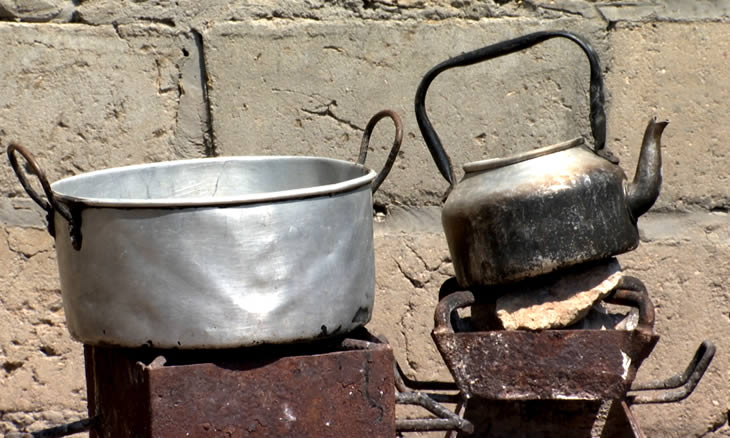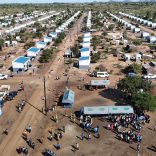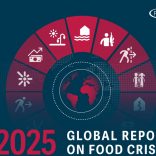Mozambique: Tzu Chi Foundation delivers more than 840 houses to cyclone victims
Covid-19: UN warns of worsening hunger – a report from Bairro Luís Cabral, Maputo

Photo: O País
Mozambique is among the 27 countries world-wide on their way to what may be the worst food crisis in recent generations, according to the United Nations Food and Agriculture Organization (FAO) and the World Food Program (WFP). And the Covid-19 pandemic is worsening the situation.
It is 9:45 a.m. in Mozambique. In Maputo’s Luís Cabral neighbourhood, a few kilometres from the city centre, four of the seven children who live in a one-room dwelling visited by ‘O País’ do not know what they are going to eat. This household lacks a little bit of everything.
This is the family of Venâncio, a handyman. Since the emergence of the new coronavirus, there is not as much to eat as before. In fact, food was already in short supply before the pandemic. On average, there were two meals a day, but now dinner is the family’s only daily meal.
“Today, for example, my husband didn’t go to work and we don’t know what we’ll eat. At the end of the day, I’ll go down the road to see if my oldest son, who is 10 years old, managed to sell anything. With the money we get, we will buy a bit of rice or flour and some curry,” Venâncio’s wife says.
While ‘O País’ was still there, the youngest child – a boy, just over a year old – shared with the other brothers what little there was. And the mother, downcast, considered that “it was a miracle; left -over food from the previous day. It will be the only meal of the day until something else is found to eat”.
The woman said that, before the pandemic, the children spent more time at school and didn’t complain so much about hunger as they do now at home. “It hurts to see my children cry and ask for food without being able to do anything. Sometimes I try to disguise it, pretend I don’t understand it, but there are days when I can’t stand it and start to cry,” she relates.
For this family, in addition to there being fewer paid jobs to guarantee the family’s survival, the pandemic has also reduced sales at their small stall . It’s rare to earn more than 30 meticais a day.
The family’s small vegetable garden is almost dead, and the pots are empty. Of the fire lit the day before to make the only meal, only ashes remain.
Zeferino Avijala works as a salesman in a store in the centre of Maputo. Because of the pandemic, his boss has reduced his salary. Zeferino says that, on what he now earns, he can only leave 100 meticais at home when he leaves for work. With this, his wife feeds both children. “When I get home at 7:00 p.m., the children cry and I don’t know what to do. It’s complicated,” he says.
Still in the same neighbourhood, Emília José endures the same scenario as Zeferino and Venâncio’s family. A woman of few words, Emília only rues the conditions to which she is subject. She does not know how to feed her household of seven, including five children.
These families do not know how long they will have to endure this Covid-19-triggered situation.
According to figures from the United Nations, more than 130 million people world-wide will be on the verge of hunger by the end of this year. Already, 690 million no longer have sufficient to eat. In Mozambique, it is estimated that 1.7 million people are already hungry.












Leave a Reply
Be the First to Comment!
You must be logged in to post a comment.
You must be logged in to post a comment.